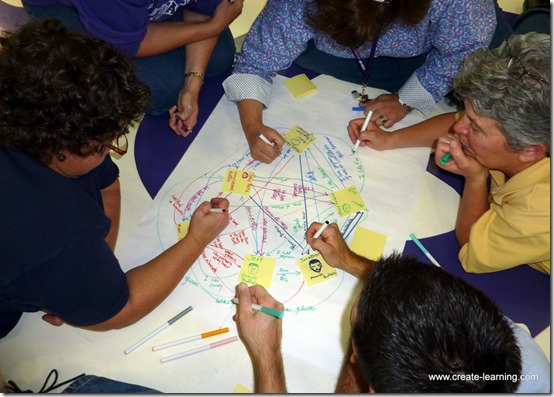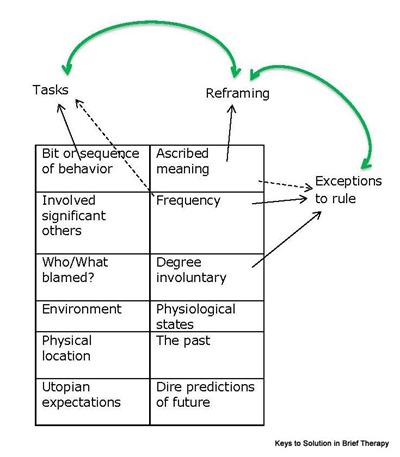In Transforming Complaints Toward Solutions & Understanding Complaints May Point to Solutions, I introduced 12 General Areas of complaints & 10 Skeleton Keys that may open the door to solutions from the complaints.
10 Skeleton Keys
Imagine that you have a key ring of 10 Skeleton Keys. As you hear the complaint a co-discovery process of ‘what does better looks like’ happens. From this Skeleton Key ring you may be able to hand the best Skeleton Key to the person.
The Skelton Keys are:
- Direct Task Assignment;
- Reframing the Situation;
- Exceptions to Rule;
- Symptom Prescription;
- Past Successes;
- New Expectations;
- Minimal Change;
- New Location;
- When will guilt be resolved?;
- What difference will it make to them?
Each Skelton Key may work best depending on how the person frames the complaint.
“Poorly constructed problems are usually built around a rather pessimistic idea that change is at least difficult. The word ‘if’ betrays this point of view…’If’ expresses a wish, i.e., ‘if only things would change,’ and therefore doubt is explicit… It is not a question of ‘if change happens?’ BUT ‘When will it happen?’ ‘When’ describes the moment of the event and is not in the least conditional.” – Steve de Shazer
Skeleton Key – Exceptions to Rule
What does the work complaint look like?
The meanings ascribed to the situation
- Examples in earlier article … My introversion is ruining my career! & They see me as a weak person who they can ignore. The sales team is ruining me!
The frequency with which the complaint happens
- Example in earlier article… Almost 8 times a week I find myself avoiding contact
The degree to which the complaint is involuntary
- It cannot be controlled or stopped. I walk into that office and sit down, Fran and I are ready to fight. It happens every time. This compulsion comes over me just seeing her makes me tense. She brings out the worst in me, I cannot control or change it. It is just how we are.
What would Exceptions to the Rule – Skeleton Key – Look like?
This is a personal favorite. I’ve written about it here & I’m presenting at the Buffalo Niagara Solution-Focused Conference on this topic.
Exception: Working to be observant of times the complaint is not happening. No complaint is extreme at all times. The belief is that you know & may be overlooking or ignoring times when things are working. Exceptions frequently go unnoticed & the situation plus actions that made a difference are overlooked because they seem too small or slow.
Discover the Opposite…
- It’s impressive, the results you have discovered. What would be the opposite of your concern, a time things are better? When this opposite occurs what are you doing? What is the other person(s) doing?
- What is different about this opposite (exception) happening & what is happening now?
- This opposite you described when has it happened? Even a little bit?
Purposefully break the pattern…
- You can’t force the other person(s) to change & you shared great examples of how you have changed. What might happen when in the situation described, you act as-if this complaint / problem is solved. Meaning you behave as-if the solution has happened and you are oblivious to any problems.
- As you do this take note of how others react to your solution, how your behavior is changed, and what happens before – during – after this situation. Write down any and all exceptions & differences (no matter how small) that you notice.
All Skeleton Keys are meant to find Cooperation and be close enough to create progress. If exceptions cannot be discovered that’s OK. Spend time talking and try something else.
What do you think?
How do you see finding Exceptions to the Rule as being helpful? What have you tried that works?



